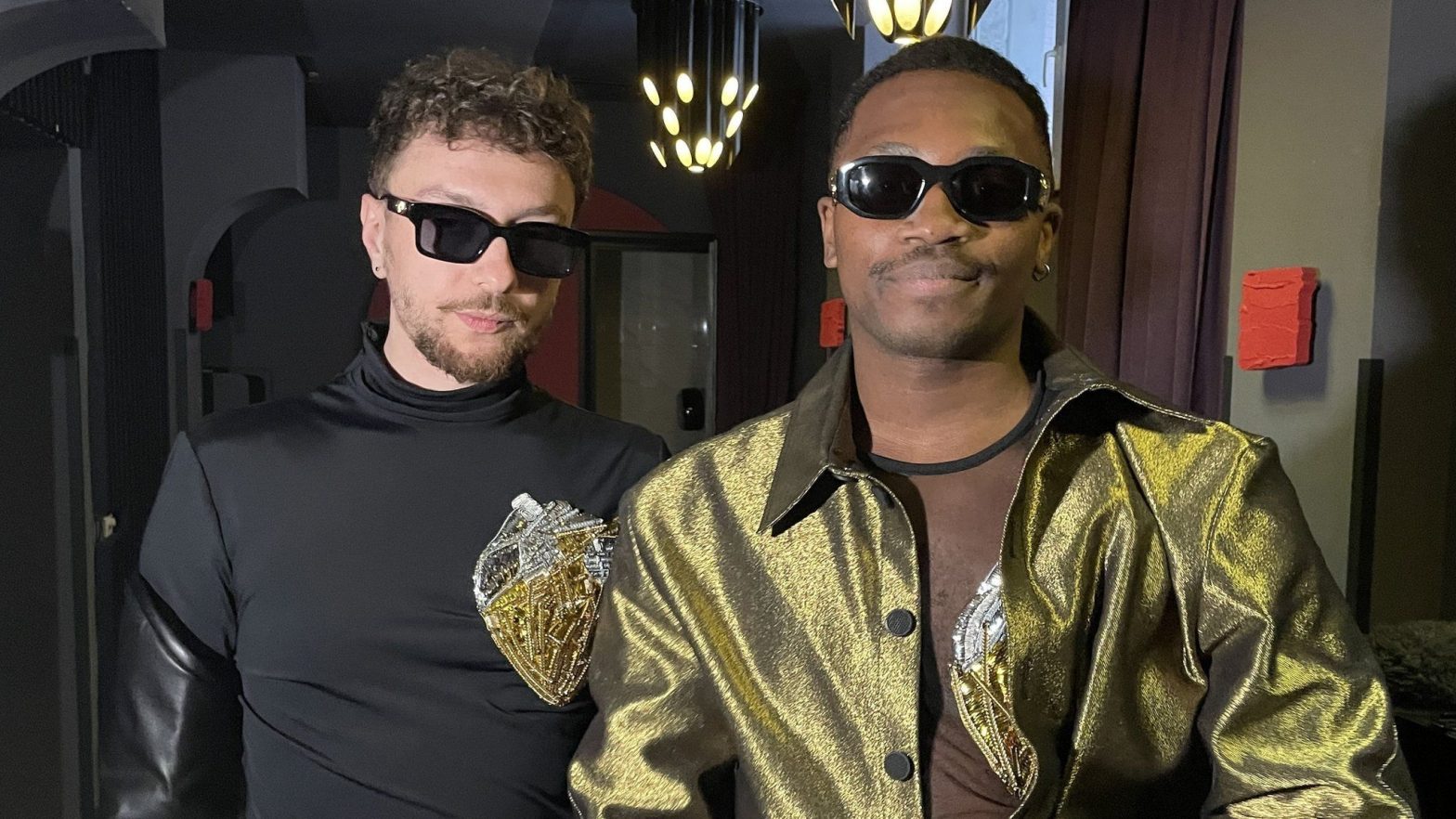Eurovision: Ukraine’s Zelensky should address contest, says Rishi Sunak
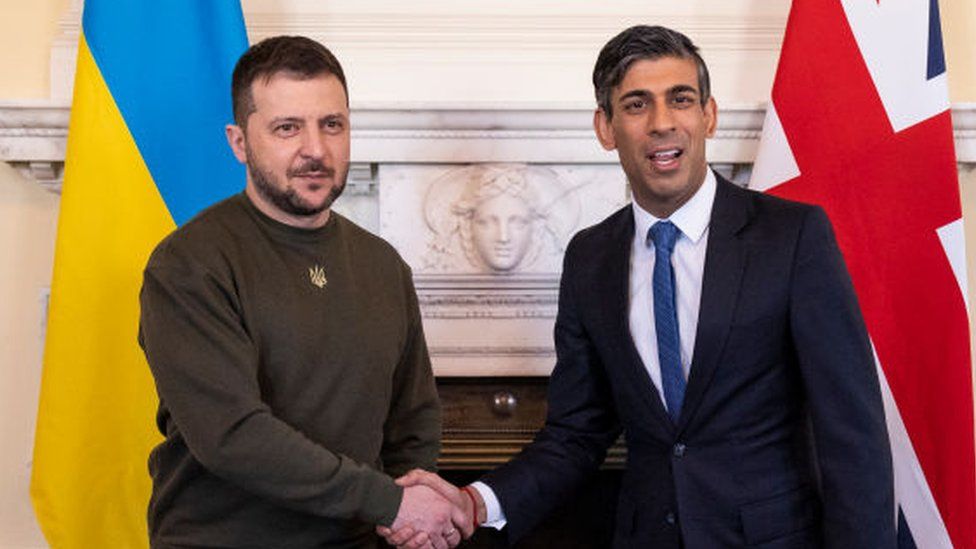
Rishi Sunak is “disappointed” Ukrainian President Volodymyr Zelensky has not been allowed to address this year’s Eurovision, his spokesman says.
The organisers, the European Broadcasting Union (EBU), say it would breach its political impartiality.
But Downing Street said it would be “fitting” for Mr Zelensky to speak given Russia’s invasion of his country.
Labour leader Sir Keir Starmer is also calling for the Ukrainian leader to be allowed to make a speech.
Ukraine was meant to be hosting this year’s Eurovision after winning it last year, but it is taking place in Liverpool instead after Russia’s invasion.
It has been reported that Mr Zelensky wanted to make a video appearance at the contest’s final on Saturday, to an expected global audience of 160 million.
- When is the Eurovision 2023 final and who is in it?
- Russia banned from 2022 Eurovision Song Contest
- Zelensky: We must wait before starting offensive
But in a statement on Thursday, the EBU said it had turned down a request from the Ukrainian president to address the event, despite his “laudable intentions”.
“The Eurovision Song Contest is an international entertainment show, and governed by strict rules and principles,” it added.
“As part of these, one of the cornerstones of the contest is the non-political nature of the event. This principle prohibits the possibility of making political or similar statements as part of the contest.”
BBC Director General Tim Davie said he understood the EBU’s decision and that throughout its history, Eurovision “has not been a platform for political statement”.
But he stressed the BBC was hosting on behalf of Ukraine and that it is “a celebration across Europe for freedom, for democracy”.
‘Values and freedoms’
The EBU said that a Ukrainian design agency had been involved in designing artwork for the event, and 11 Ukrainian artists, including last year’s winners Kalush Orchestra, would be performing.
However, Mr Sunak’s spokesman questioned the decision not to have Mr Zelensky speak, saying: “The values and freedoms that President Zelensky and the people of Ukraine are fighting for are not political, they’re fundamental.”
His spokesman argued that Eurovision “themselves recognised that last year” by banning Russian artists from participating.
However, he added that the prime minister had no plans to intervene and ask broadcasters to change their mind.
Ukraine’s ambassador to the UK, Vadym Prystaiko, said the final of the contest would have been a “great moment” for Mr Zelensky to address a huge audience.
But speaking to PA Media, he added: “We understand all the internal politics and the unbiased sort of approach to all this, that’s why we don’t have to push too much.”
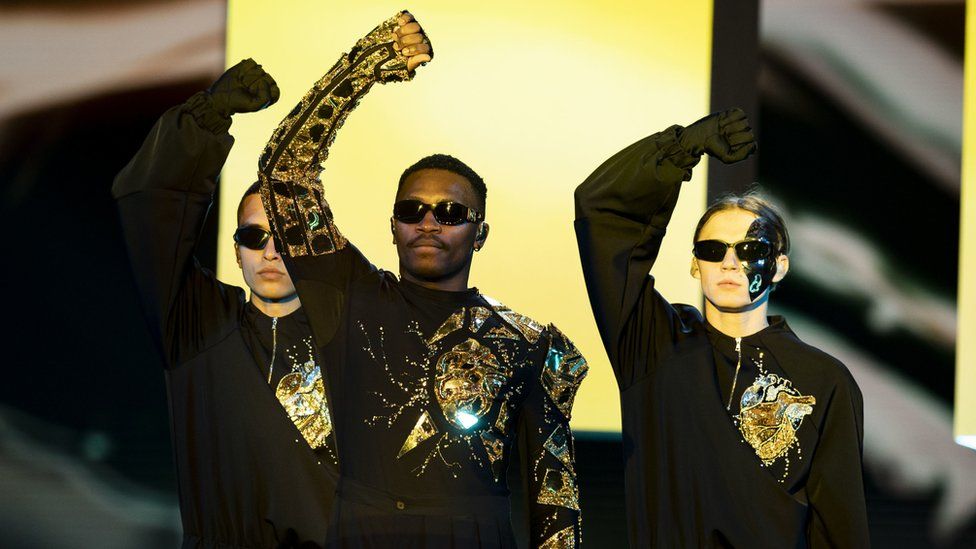
In statement, Labour leader Sir Keir Starmer said: “It’s vital that we all continue to keep the plight of the Ukrainian people front of mind as they stand up to Russian aggression on behalf of us all.
“Eurovision is an expression of international unity and freedom, and President Zelensky should be able to address it as a great defender of both.”
Russia ban
The EBU initially said it would allow Russia to participate in the 2022 final, following its invasion of Ukraine two months before it was due to be held in Italy.
But it then changed course within 24 hours, saying that allowing Russia to take part would “bring the competition into disrepute”.
UA:PBC, Ukraine’s public broadcaster, as well as those from Iceland, Finland, Norway and the Netherlands, had called for Russia to be banned.
Boris Johnson, who was British prime minister during Russia’s invasion and oversaw the UK’s initial response, said “it would have been right to hear” from him during the final on Saturday.
Formed in 1950, the EBU has 68 broadcasting organisations as members, including the BBC – which is hosting this week’s finals and semi-finals.


Eurovision was conceived in the 1950s as a way of promoting post-war unity between European states. As a result, politics has always been kept at arm’s length.
It’s a policy that’s never been easy or comfortable to enforce. In 2005, Lebanon was due to make its debut when it refused to air Israel’s entry. As a result, it received a three-year ban from the contest, and never took part.
Georgia also fell foul of the rules in 2009, when they submitted a song called “We Don’t Wanna Put In”.
The lyrics were a thinly-veiled critique of Russia’s Vladimir Putin, following the previous year’s Russo-Georgian war. When the country refused to amend the song, they were suspended.
The commitment to neutrality is so strong that, last year, organisers agonised over what to do about Russia following the invasion of Ukraine.
Although Russia was eventually banned, Eurovision’s executive supervisor Martin Osterdahl said it had been a hard decision to make.
“It was, and it still is,” he told BBC Radio 4’s Today programme.
But, he added: “How Europe feels very much affects the contest. When we say we are not political, what we always should stand up for are the basic and ultimate values of democracy.”
Critics of the decision to decline President Zelensky will say the contest has already made a political move by banning Russia. And their argument isn’t without merit.
But the EBU would counter that supporting a war-torn country is very different to allowing the leader of that country to make a call to arms.
Related Topics
- Volodymyr Zelensky
- Eurovision Song Contest
- Rishi Sunak
- Ukraine
-
‘I almost lost my new album in Russia’s invasion’
-
1 day ago
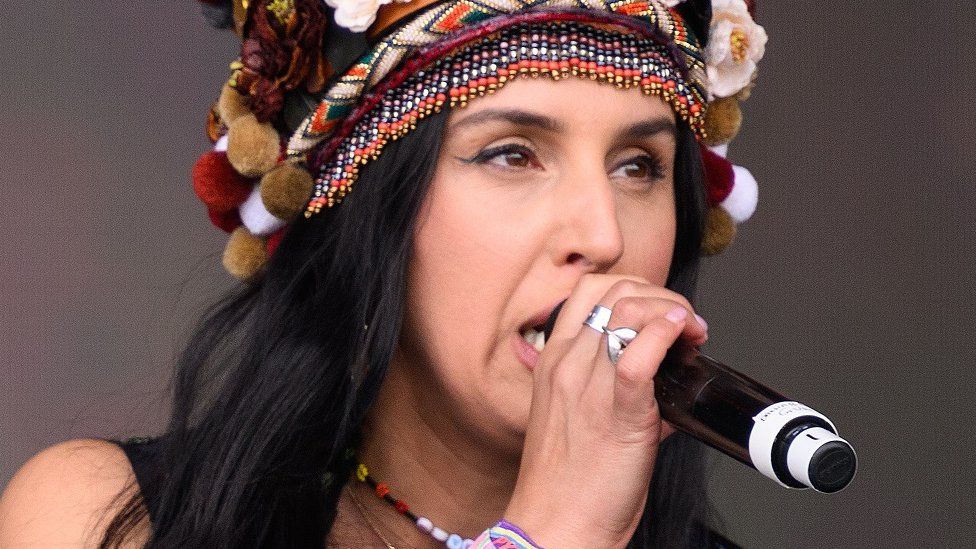
-
-
Zelensky: We must wait before starting offensive
-
1 day ago
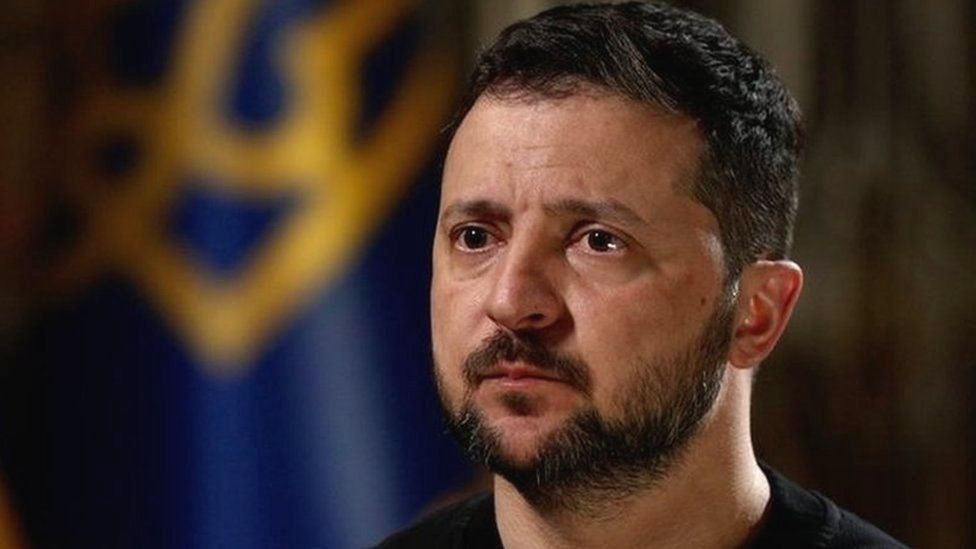
-
-
The duo seeking Eurovision glory for Ukraine
-
19 April
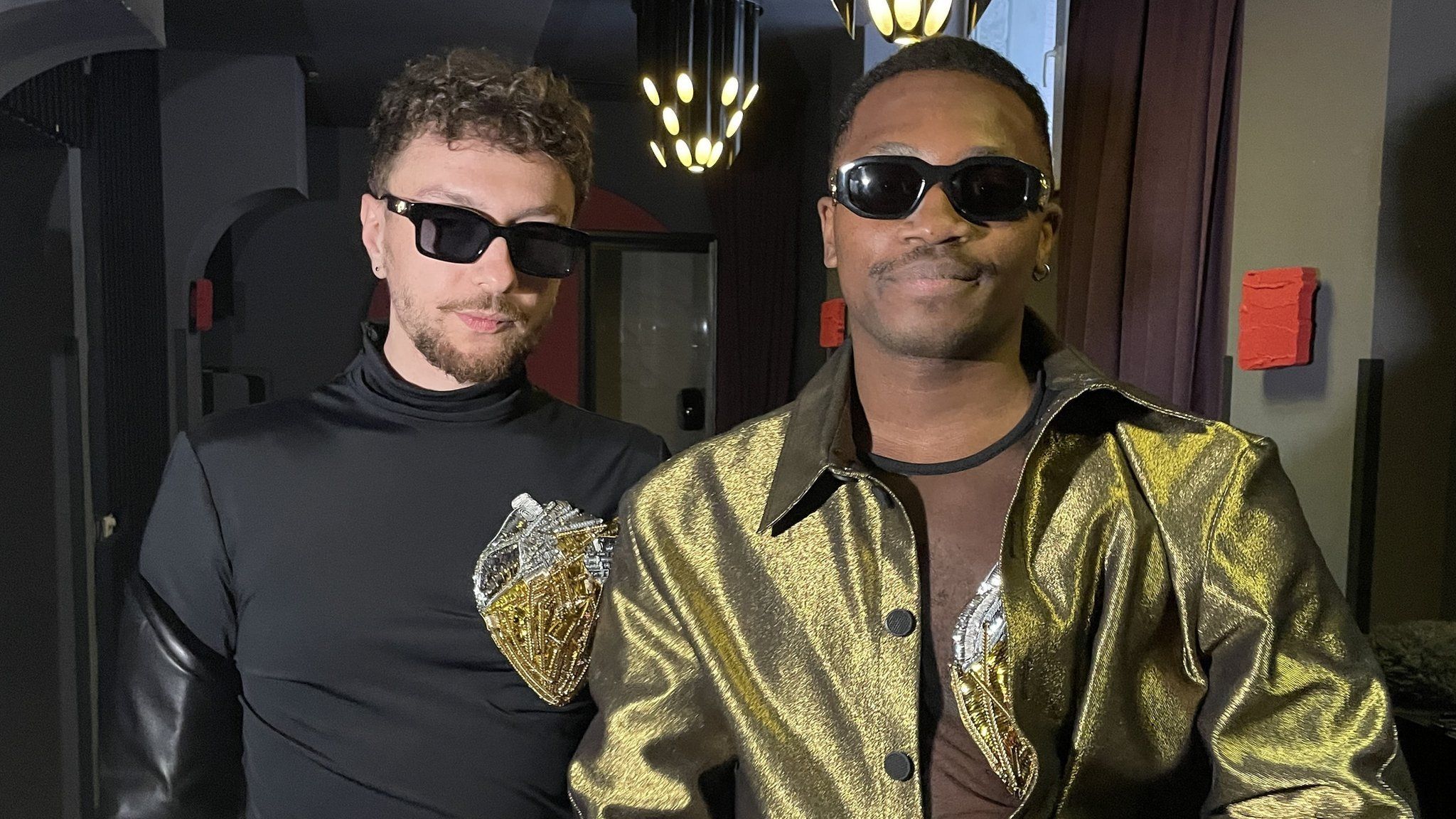
-
Published at Fri, 12 May 2023 18:55:16 +0000
